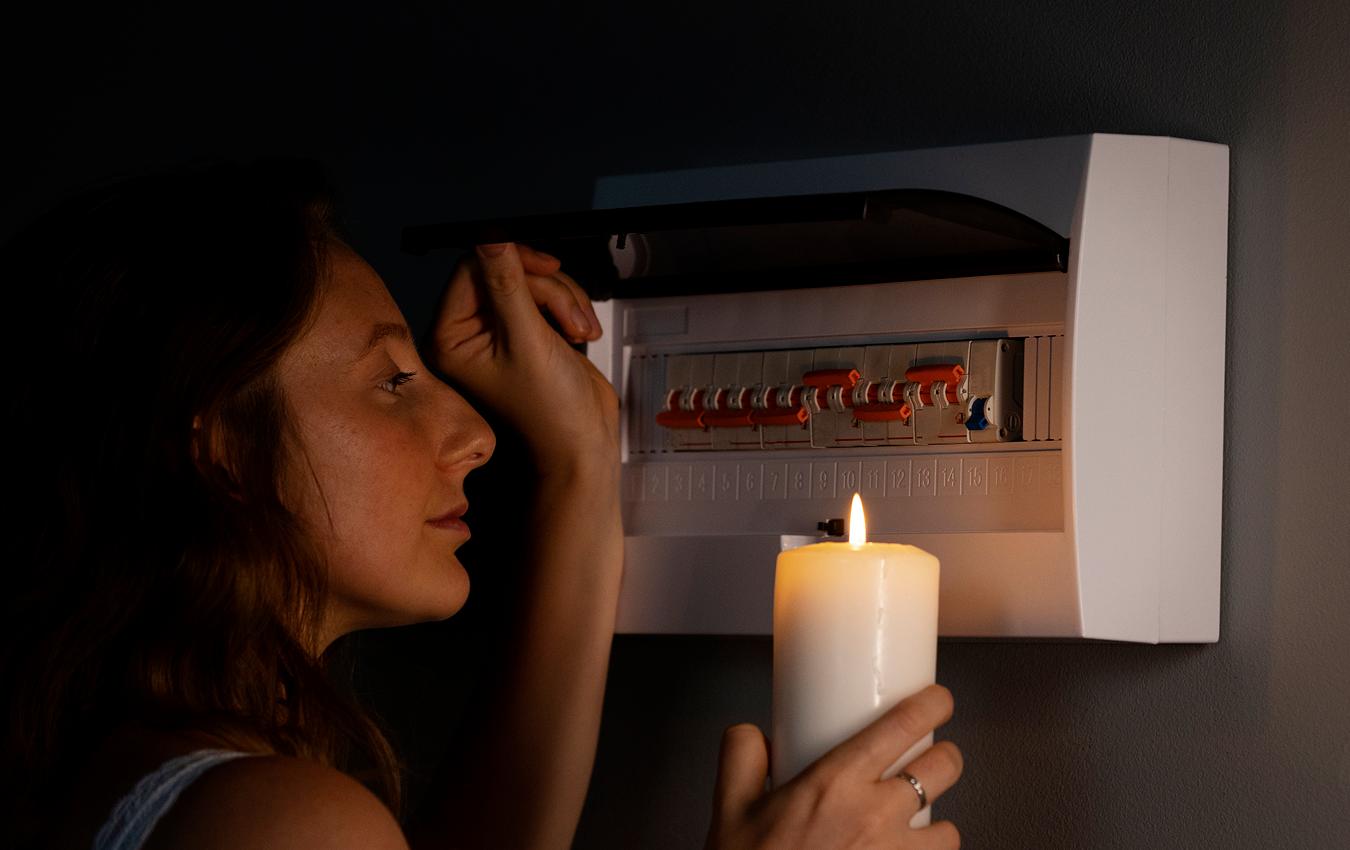For every parent, a child’s safety is paramount. While you likely childproof obvious dangers, one often-overlooked threat lurks within your walls: your home’s electrical system. Children are naturally curious, and electricity, being invisible, poses a significant, silent risk. This isn’t about instilling fear; it’s about proactive, effective protection. This guide provides Fort Lauderdale parents with the expert knowledge and practical steps needed to make their homes electrically safe for their children, installing safe electrical outlets and more. We’re not just talking about meeting basic safety codes; we’re aiming for a level of protection that exceeds expectations, because your child’s well-being is non-negotiable.
Understanding the Unique Electrical Challenges in Fort Lauderdale
Fort Lauderdale’s climate presents specific challenges to electrical safety. Our high humidity, frequent storms, and proximity to saltwater can accelerate corrosion and wear on electrical components, both indoors and outdoors. This means that even seemingly minor issues, like a loose outlet cover, can pose a greater risk than in drier climates. Older homes, common in many Fort Lauderdale neighborhoods, often have outdated wiring systems that may not meet current safety standards or be adequately equipped to handle the demands of modern appliances and electronics. Grounding is especially crucial in our environment, helping to safely dissipate excess electrical current, especially during lightning strikes, which are a frequent occurrence here. Ignoring these location-specific factors can significantly increase the risk of electrical accidents. The salty air can infiltrate outdoor outlets and fixtures, leading to faster degradation and increasing the chance of shorts and shocks. Regular inspections and proactive maintenance are not just good practice; they are essential in our unique coastal environment.
Beyond these environmental considerations, it’s crucial to understand the legal framework surrounding electrical work in Florida. Florida Statute Chapter 489 explicitly prohibits unlicensed individuals from performing electrical work. This isn’t just a suggestion; it’s the law, designed to protect homeowners from the significant dangers of improperly performed electrical work. Attempting DIY electrical repairs or modifications, even seemingly simple ones, can not only void your home insurance but also create serious safety hazards, including electrocution and fire. The risks are simply too great, especially when children are involved.
Therefore, it is strongly recommended to always use licensed electrical services in Fort Lauderdale for any electrical work in your home, from installing new outlets to complete rewiring.
Tamper-Resistant Receptacles (TRRs): Your First Line of Defense
Forget those flimsy plastic outlet plugs. They’re easily removed by determined toddlers and can even become choking hazards themselves. Your first, and arguably most crucial, step is replacing all standard outlets with Tamper-Resistant Receptacles (TRRs). These are now required by the National Electrical Code (NEC) in new constructions, but if your home is older, it’s a worthwhile upgrade. TRRs have spring-loaded shutters that cover the outlet slots, preventing children from inserting objects other than a standard plug. It is the best practice of childproofing electrical outlets. Both shutters must be compressed simultaneously for the outlet to open, making it extremely difficult for a child to access the live electrical contacts. The installation is straightforward for a qualified electrician, and the cost is minimal compared to the protection they provide. Think of them as a permanent, built-in safety solution that doesn’t rely on you remembering to replace a loose plug. TRRs are particularly important in areas frequented by children, such as bedrooms, playrooms, and living areas, but ideally, they should be installed throughout your entire home.
Ground Fault Circuit Interrupters (GFCIs): Protecting Against Shock in Wet Areas
Bathrooms, kitchens, laundry rooms, garages, and outdoor areas – anywhere near water – require special protection. This is where Ground Fault Circuit Interrupters (GFCIs) come in. These devices are designed to detect even tiny variations in electrical current that indicate a ground fault – a situation where electricity is taking an unintended path to the ground, potentially through a person. When a ground fault is detected, the GFCI instantly shuts off the power to the circuit, preventing a potentially fatal shock. GFCIs are available as receptacles (replacing standard outlets) or as circuit breakers in your electrical panel. Like TRRs, GFCIs are now standard in new construction, but older Fort Lauderdale homes may lack them in critical areas. Check your existing outlets – they should have “Test” and “Reset” buttons. If not, it’s time for an upgrade. Pay particular attention to outdoor outlets, which are especially vulnerable to moisture and corrosion in our climate. A GFCI-protected outdoor outlet is essential for powering holiday lights, yard tools, or any other electrical devices used outside.
Circuit Breaker Panel Mastery: Knowing Your Home’s Electrical Heartbeat
Your circuit breaker panel is the control center of your home’s electrical system. Understanding it is crucial for both safety and convenience. First, ensure that all circuits are clearly and accurately labeled. This will save you time and frustration when you need to shut off power to a specific area, and it’s essential in an emergency. Familiarize yourself with the different types of breakers – standard breakers, GFCI breakers, and Arc-Fault Circuit Interrupter (AFCI) breakers (which we’ll discuss next). Learn how to properly reset a tripped breaker. A tripped breaker is usually an indication of an overload or a fault in the circuit. If a breaker trips repeatedly, don’t ignore it – call a qualified electrician to investigate the cause. Consider installing a whole-house surge protector on the panel. This device protects your entire electrical system, including sensitive electronics, from damage caused by power surges, which are common during our frequent thunderstorms. A whole-house surge protector is a relatively inexpensive investment that can save you thousands of dollars in damage to appliances and electronics.
Arc-Fault Circuit Interrupters (AFCIs): Preventing Electrical Fires
While GFCIs protect against shocks, Arc-Fault Circuit Interrupters (AFCIs) are designed to prevent fires caused by arcing faults. Arcing faults are unintended electrical discharges that can occur in damaged or deteriorated wiring, loose connections, or faulty appliances. These arcs can generate intense heat, igniting nearby combustible materials. AFCIs detect these dangerous arcing conditions and quickly shut off the power, preventing a fire from starting. The NEC now requires AFCIs in many areas of the home, including bedrooms, living rooms, and dining rooms. They are available as circuit breakers that are installed in your electrical panel. Upgrading to AFCI breakers is a particularly important safety measure in older Fort Lauderdale homes, where wiring may be more susceptible to damage and deterioration. The combination of AFCIs and GFCIs provides a comprehensive level of electrical protection for your family.
Cord Management: Taming the Tangle of Temptation
Loose and dangling cords are an irresistible temptation for young children. They can pull on them, chew on them, or even wrap them around their necks. Proper cord management is essential for preventing accidents. Start by eliminating unnecessary cords whenever possible. Use wireless devices where feasible and opt for shorter cords when available. Secure any remaining cords out of reach of children. You can use cord concealers, cable ties, or cord management boxes to keep cords organized and hidden. Avoid running cords under rugs or across walkways, where they can be a tripping hazard and are more likely to be damaged. Teach children that cords are not toys and should never be played with. Regularly inspect cords for any signs of damage, such as fraying, cracking, or exposed wires, and replace them immediately. Remember, even a seemingly minor nick in a cord’s insulation can expose a child to live electrical current.
Appliance Safety: Beyond the Basics
Appliances, especially those with heating elements or moving parts, pose unique electrical safety risks. Always unplug small appliances, such as toasters, blenders, and hair dryers, when not in use. This prevents children from accidentally turning them on and also protects the appliances from power surges. Keep appliances away from water sources. Never use a hairdryer or other electrical appliance near a bathtub or sink. Ensure that appliances are properly grounded. Most modern appliances have three-prong plugs, which provide a grounding path. Never remove the grounding prong or use an adapter that bypasses the grounding connection. Regularly inspect appliance cords for damage and replace them if necessary. Consider using safety covers for stove knobs to prevent children from turning them on. These simple precautions can significantly reduce the risk of electrical accidents involving appliances.
Electrical Safety Education: Empowering Your Children
Childproofing your home’s electrical system is not just about physical barriers; it’s also about education. As soon as your children are old enough to understand, start teaching them about electrical safety. Explain that electricity is powerful and can be dangerous. Teach them never to touch electrical outlets, cords, or appliances with wet hands. Show them the circuit breaker panel and explain its purpose. You should emphasize that they should never touch it. Use age-appropriate language and visual aids to make the lessons engaging. Reinforce these lessons regularly and make electrical safety a part of your family’s everyday routine. By empowering your children with knowledge, you’re giving them the tools to protect themselves, even when you’re not there.
Rewiring: A Foundation for Electrical Safety in Older Homes
Now, let’s discuss the main, although not always obvious, ways of childproofing electrical systems in Fort Lauderdale. While tamper-resistant receptacles, GFCIs, and AFCIs provide protection, they can’t fully compensate for fundamentally unsafe wiring. Many homes in Fort Lauderdale, particularly in older neighborhoods, were built with electrical systems that are now outdated, potentially unsafe, and inadequate for modern electrical demands.
Knob-and-tube wiring, common in homes built before the 1950s, lacks a grounding conductor, significantly increasing the risk of shocks and fires. Aluminum wiring, used in some homes built in the 1960s and 70s, can be problematic due to its tendency to loosen connections, creating a fire hazard. Even older copper wiring can deteriorate over time, with insulation becoming brittle and cracked, exposing live wires.
If your home is more than 25-30 years old, or if you notice any warning signs like flickering lights, frequently tripped breakers, discolored outlets, or a burning smell from electrical components, a professional electrical inspection is essential. And the electrician may recommend partial or complete rewiring. Yes, this is a significant undertaking, but it provides the most fundamental level of electrical safety, creating a solid foundation for all other childproofing measures. Rewiring ensures that your home’s electrical system meets current safety codes, has adequate capacity for modern appliances, and eliminates hidden hazards associated with old or damaged wiring. Think of rewiring as a long-term investment in your family’s safety and your home’s value.
Other Childproofing Strategies
For the truly proactive parent, there are additional layers of electrical safety you can consider. These go above and beyond the standard recommendations and offer an even greater level of protection. One option is to install outlet covers that require a key to remove. These are more secure than standard TRRs and are ideal for areas where you want to completely restrict access to outlets, such as a home office or workshop. Another option is to use power strip covers, which enclose the entire power strip and prevent children from plugging or unplugging anything. You can also consider installing “smart” outlets and switches that can be controlled remotely via a smartphone app. These allow you to turn off power to specific outlets or appliances from anywhere, providing an extra layer of control and peace of mind. While these advanced strategies may not be necessary for every home, they offer an added level of security for parents who want to go the extra mile.
Regular Professional Inspections
While all the above measures are crucial, the ultimate safeguard is a regular professional electrical inspection. A qualified, licensed electrician can identify potential hazards that you might miss, such as hidden wiring problems, overloaded circuits, or faulty grounding. They can also ensure that your home’s electrical system meets current safety codes and recommend upgrades if necessary.
In Fort Lauderdale’s demanding climate, an annual inspection is highly recommended, especially for older homes. Think of it as a preventative maintenance check-up for your home’s electrical system. The cost of an inspection is a small price to pay for the peace of mind that comes with knowing your family is protected. A professional electrician can also advise you on the latest safety technologies and upgrades, such as smart home devices that can enhance electrical safety and convenience.
Conclusion
This guide has covered a comprehensive range of strategies for childproofing your home’s electrical system, from the essential steps of installing Tamper-Resistant Receptacles (TRRs) and Ground Fault Circuit Interrupters (GFCIs) to understanding the importance of Arc-Fault Circuit Interrupters (AFCIs), proper cord management, appliance safety, and even the potential need for rewiring in older homes. We’ve also emphasized the unique electrical challenges posed by Fort Lauderdale’s climate and the crucial role of regular professional inspections. We looked at how important educating your children is. Remember, electrical safety is an ongoing process, not a one-time fix. It requires vigilance, proactive measures, and a commitment to creating a safe environment for your children.
Ready to ensure your home’s electrical system is truly childproof? Don’t leave it to chance. Contact Premier Electrical Services at 954-900-1696 today for a comprehensive electrical safety inspection and expert advice tailored to your specific needs.
Key Takeaways
- Childproofing your electrical system is a multi-layered approach, involving physical barriers (TRRs, GFCIs, AFCIs), management practices (cord control, appliance safety), and potentially even rewiring.
- Fort Lauderdale’s unique climate and older housing stock necessitate extra vigilance regarding electrical safety, including regular professional inspections.
- DIY electrical work is illegal and dangerous in Florida; always hire a licensed electrician for any electrical repairs or upgrades.
Check out the latest news:
- Commercial Energy Audit: Spotting the Sources of Energy Waste
- Protect Your Fort Lauderdale Home with Whole-House Surge Protection
- Power Outages in Fort Lauderdale: How to Protect Your Home
- Preparing for a Home Rewiring Project: A Checklist for Homeowners
- 5 Critical Signs You Need a Whole-House Surge Protector





